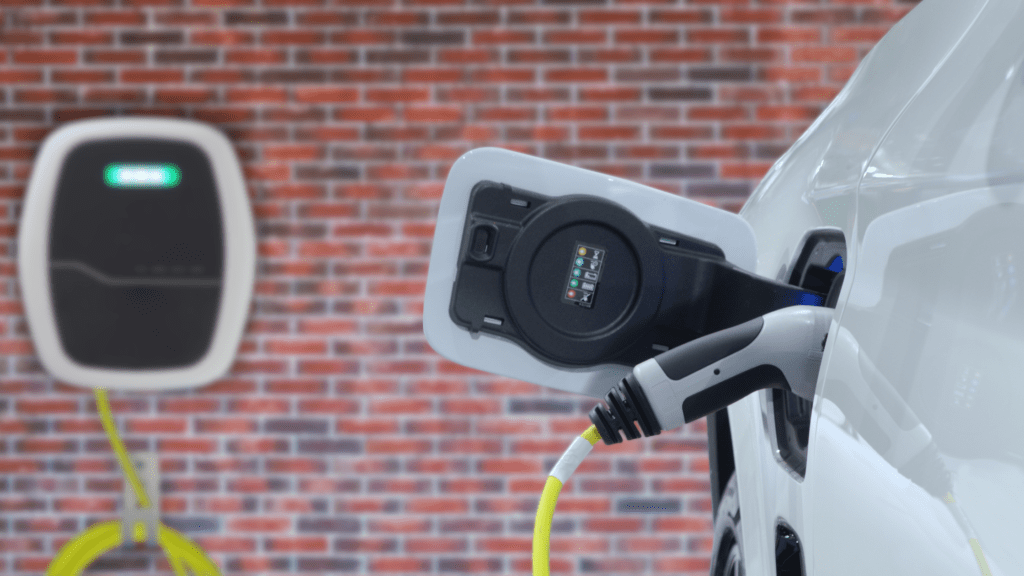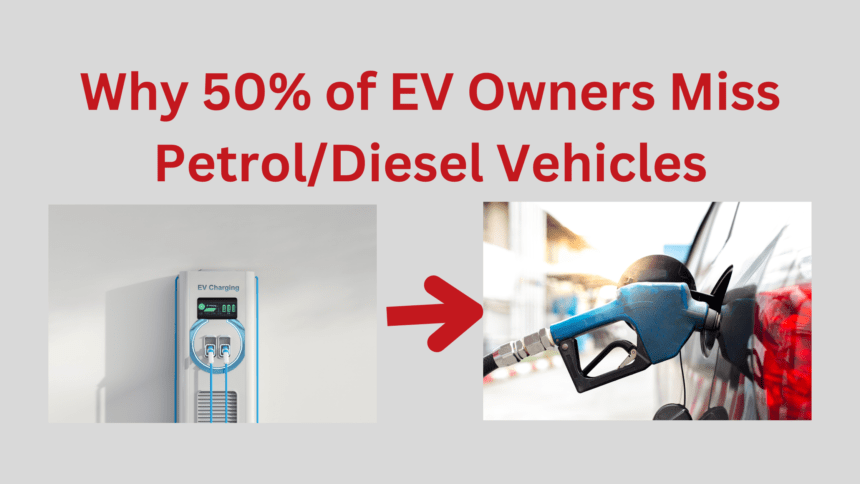50% of EV Owners Favor Petrol/Diesel Comeback
Introduction
The electric vehicle (EV) market has seen rapid growth over the past decade, driven by promises of environmental sustainability, advanced technology, and governmental support. However, a surprising statistic has emerged: 50% of EV owners favor petrol or diesel cars once again. This shift raises important questions about the current state of EV technology and its ability to meet consumer expectations.
The Allure of Electric Vehicles
Electric vehicles were initially hailed as the solution to many of the world’s environmental problems. They offered significant reductions in greenhouse gas emissions and other pollutants compared to internal combustion engine (ICE) vehicles. Technological advancements, such as regenerative braking and autonomous driving features, further enhanced their appeal. Additionally, various governments around the world provided substantial incentives, including tax breaks and rebates, to encourage the adoption of EVs.
Despite these advantages, many EV owners now favor petrol or diesel cars. This shift suggests that the initial allure of EVs might not be enough to sustain long-term consumer satisfaction.
The Growing Pains of EV Ownership
Despite their advantages, EVs have encountered several challenges that have dampened their appeal. One of the most significant issues is the charging infrastructure. While urban areas may have a reasonable number of charging stations, rural regions often lag far behind, leading to “range anxiety” – the fear that a vehicle will run out of power before reaching a charging point. Furthermore, the maintenance and repair of EVs can be problematic due to the specialized knowledge and parts required.
This reality has led to a situation where a significant number of EV owners favor petrol or diesel cars due to these persistent issues. Charging infrastructure challenges, range anxiety, and maintenance difficulties are primary reasons why EV owners favor petrol or diesel cars once more.

Financial Considerations
The financial aspects of owning an EV are complex. The initial purchase price of an EV is typically higher than that of a comparable petrol or diesel vehicle. While EVs often promise long-term savings on fuel and maintenance, these benefits can be offset by the higher upfront costs and the depreciation rates, which can be steeper for EVs than for traditional cars. This financial calculus has led some owners to reconsider their choice.
For many, the economic burden is a key reason why EV owners favor petrol or diesel vehicles. The high initial costs and concerns over depreciation contribute to this preference.
The Reality of Daily Use
EV performance can vary significantly depending on the driving environment. Urban drivers may find EVs more suitable due to the availability of charging stations and the benefits of regenerative braking in stop-and-go traffic. However, those in rural or less developed areas face greater challenges. Weather can also impact EV performance, with cold temperatures reducing battery efficiency. The uneven availability of charging stations further complicates daily use for many drivers.
These everyday challenges are significant factors in why EV owners favor petrol or diesel vehicles. The adaptability and convenience of traditional cars often outweigh the benefits of electric cars for these users.
The Resurgence of Petrol/Diesel Appeal
For many, the reliability and familiarity of petrol and diesel cars remain compelling. These vehicles are known for their consistent performance and power, and refueling is quick and convenient compared to recharging an EV. The established network of fuel stations ensures that drivers can travel long distances without worrying about finding a place to recharge.
This resurgence in the appeal of petrol and diesel cars is a major reason why EV owners favor petrol or diesel cars once again. The ease of use and dependable infrastructure of traditional vehicles play a significant role.

Case Studies: Voices of the Disenchanted
Many former EV owners have shared their experiences of switching back to petrol or diesel cars. Common reasons include the inconvenience of charging, unexpected maintenance issues, and dissatisfaction with the real-world range of their EVs. These testimonials highlight the practical challenges that can outweigh the theoretical benefits of electric vehicles.
These personal stories underscore why many EV owners favor petrol or diesel cars. Real-world experiences reveal the limitations and frustrations that lead to this shift.
The Role of Infrastructure in EV Disillusionment
The slow progress in the deployment of charging stations is a major factor in the disillusionment with EVs. While some regions have made significant advancements, others remain underserved, leading to a disparity in the usability of EVs. This uneven infrastructure development has left many drivers frustrated and more inclined to return to petrol or diesel vehicles.
The inadequacy of charging infrastructure is a critical reason why EV owners favor petrol or diesel cars. The disparity in availability and convenience between charging stations and traditional fuel stations is stark.
Environmental Impact: A Double-Edged Sword
While EVs are often marketed as environmentally friendly, the reality is more nuanced. The production of EVs, particularly their batteries, generates significant emissions. A comprehensive lifecycle analysis shows that, while EVs typically have lower emissions during use, their overall carbon footprint can be substantial when considering production and disposal. This complexity has led some environmentally conscious consumers to question the net benefit of EVs.
These environmental considerations are another reason why some EV owners favor petrol or diesel cars. The full environmental impact of EVs can sometimes overshadow their operational benefits.
Economic Factors Driving the Shift
Economic considerations also play a role in the shift back to petrol and diesel cars. Fluctuations in oil prices can make petrol and diesel more attractive, while the cost of electricity, especially from renewable sources, can vary. Market dynamics, including the availability of used EVs and the resale value of petrol and diesel cars, influence consumer behavior and preferences.
Economic factors are crucial in understanding why EV owners favor petrol or diesel vehicles. Market conditions and cost variability contribute to this trend.
Psychological and Social Influences
The initial status symbol of owning an EV has, for some, shifted to a more practical consideration. Peer influence and societal trends can sway decisions, as can the emotional connection many drivers feel with their cars. The sensory experience of driving a petrol or diesel car – the sound and feel of the engine – can be a significant factor in the decision to switch back.
These psychological and social influences are powerful reasons why EV owners favor petrol or diesel cars. The emotional and experiential aspects of driving traditional vehicles remain strong motivators.
The Automotive Industry’s Response
Automakers are keenly aware of the shifting sentiments among consumers. Many are investing in hybrid technologies that combine the benefits of both electric and internal combustion engines. Innovations aimed at improving EV performance and addressing consumer concerns are also underway, as the industry seeks to retain and grow its customer base.
The industry’s response to consumer preferences helps explain why some EV owners favor petrol or diesel cars. By adapting and innovating, automakers aim to meet the diverse needs of the market.
Government Policies and Their Impact
Government policies play a crucial role in shaping the automotive market. Changing incentives and regulations can create uncertainty for consumers. Inconsistent policies between regions further complicate the landscape. Comparing international approaches reveals different levels of success in promoting EV adoption and addressing the issues that lead to disillusionment.
Policy shifts and inconsistencies are significant factors in why EV owners favor petrol or diesel cars. Government actions can either support or hinder the adoption of electric vehicles.
The Future of Mobility: Balancing Act
Predicting the future of the EV market involves balancing numerous factors. While EVs are likely to continue growing in popularity, the potential resurgence of hybrid vehicles and improvements in ICE technology could create a more balanced market. Sustainable solutions that incorporate a variety of vehicle types may ultimately provide the best path forward.
The future of mobility is a key consideration for understanding why EV owners favor petrol or diesel cars. Balancing technological advancements with practical needs will shape the landscape.
Conclusion
The shift of 50% of EV owners favoring a return to petrol or diesel cars highlights the complexities and challenges of the transition to electric vehicles. From infrastructure and financial considerations to psychological and social influences, the reasons behind this trend are multifaceted. As the automotive industry and governments work to address these issues, the future of personal transportation remains in flux, promising continued evolution and innovation.
This comprehensive look at the reasons why EV owners favor petrol or diesel cars underscores the need for a nuanced approach to the future of transportation. The road ahead will require addressing these concerns to create a more sustainable and satisfying driving experience for all.
For more content follow Humstory













